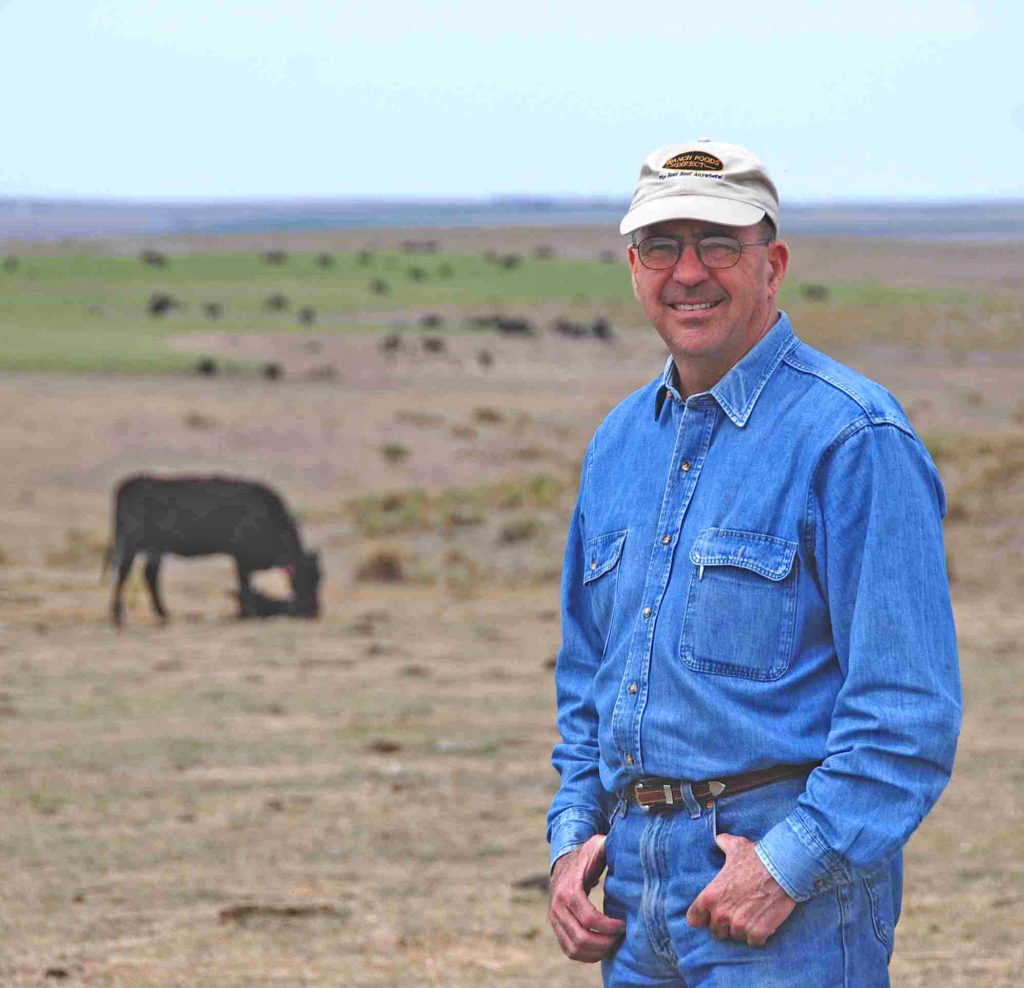Blogs | Oct. 21, 2019
“My stance on agriculture is an expression of my Catholic faith and the values I was raised with.”
Catholic Mike Callicrate is an outspoken champion of independent farmers and ranchers, and who dedicates himself to preserving their shrinking numbers. After all, as he has stated, they are “the backbone of America.”
Now a resident of both Colorado Springs and St. Francis, Kansas, Callicrate has an obvious passion for rural life, which started as a child growing up with seven siblings south of Evergreen, Colorado. “I became really interested in raising livestock when spending time with my cousins in Fort Collins on their diversified farm,” he said. “My parents supported all the agriculture you could fit onto our 5 acres, including a garden, chickens, horses, my brother’s turkeys, and my 4H sheep project.”
While still in high school, he also developed an interest in the sport of bull riding. “I became a professional bull rider and braided bull ropes for myself and other bull riders,” he said. “I had a rodeo scholarship. So that was my profession for 10 years. It got me through college and into agriculture.”
After graduation, Callicrate eventually moved to St. Francis to start his own farming and ranching operation. “I really made the connection between food and faith after meeting Brother David Andrews, then executive director of the National Catholic Rural Life Conference,” he said. “He reinforced my view that eating is a moral act because our food choices have an impact on farmers, workers, animals, and the environment.”
Callicrate wrote a stirring article for the June 2019 issue of the Catholic Rural Life magazine. He said, “My stance on agriculture is an expression of my Catholic faith and the values I was raised with. As a cradle Catholic, I was taught that life and work have a moral dimension and that we are expected to do good things for others and fulfill a role of responsibility in our home and community. Eating truly is a moral act.”
Callicrate has worked hard over the years to explain to diverse audiences how food choices are connected to economic and social justice issues. He served as an adviser for several documentary films, including Food Inc., and popular books such as The Omnivore’s Dilemma, and Fast Food Nation.
On his farm, he’s worked to develop a regenerative production model, which consists of raising Wagyu-Angus cattle, Berkshire pigs and laying hens. He also markets directly to consumers. “Our meat is the best there is,” he said. “The animals are not stressed when slaughtered. They are processed right on the farm, instead of being hauled long distances. The carcasses are shipped to Colorado Springs, where they are cut up into wholesale and retail portions.” Several restaurants partner with Callicrate, along with small specialty markets.
Customers can buy the meat at the two retail stores he operates in Colorado Springs and online. He also has a food hub and processing plant that serves as a distribution point for other small regional food producers.
Callicrate feels that local parishes have not done enough to explain the connection between food and faith. “The priests give representatives of big chain supermarkets time at the pulpit to encourage parishioners to shop their markets as a fundraiser,” he said. “But big chain retailers are intent on driving down prices to farmers and ranchers and importing food from wherever they can find it the cheapest, despite worker and animal abuse and environmental degradation. We will lose our family farms and local food processors unless we are willing to support them.”
Note: For more information about Callicrate and his various business ventures, visit www.mikecallicrate.com.













